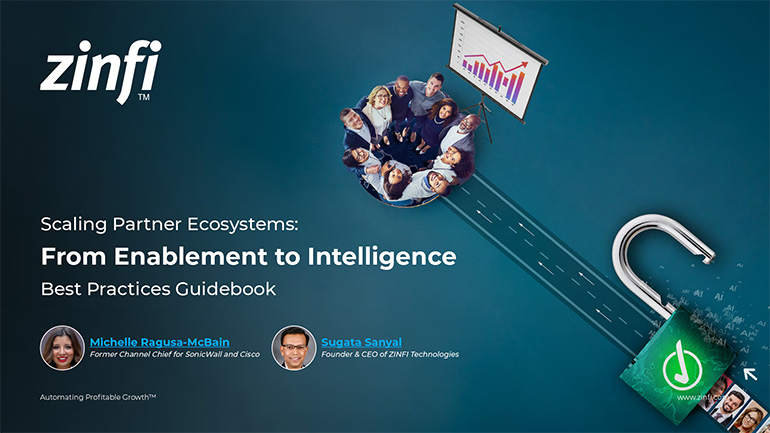Glossary - What is - CRM Benefits
What are CRM Benefits?
Customer Relationship Management (CRM) benefits encompass a range of advantages that businesses leverage to manage interactions with current and potential customers. A CRM system integrates various functions to streamline business processes, enhance customer relationships, and increase sales. It provides tools for managing communications, sales, marketing, customer service, and data analytics in a centralized platform. CRM systems are crucial for maintaining detailed records of customer interactions, which helps personalize service offerings and predict customer needs and behaviors.
CRM benefits are vital in the context of partner ecosystem management and partner management automation. These systems facilitate better communication and coordination between a company and its partners, enhancing the efficiency of collaborative efforts. Automating data exchange and workflow processes through a CRM can lead to more accurate and timely information, fostering trust and improving strategic decision-making within partnerships. Integrating CRM systems into partner management processes supports a unified approach to managing business relationships across the board.
Key Takeaways
- Improved Customer Insights: CRM systems provide deep insights into customer behavior, preferences, and needs through data analysis. These insights enable businesses to tailor their marketing efforts and improve customer engagement. In a partner ecosystem, such insights can be shared with partners to ensure aligned and targeted approaches across different channels and touchpoints. More on this can be found at Customer Management.
- Enhanced Communication: CRM systems help streamline communication within an organization and with its partners. They provide tools that ensure messages are consistent and aligned with the company’s objectives. For partners, this means better and more timely information, enhancing collaboration, and driving joint sales efforts. Check out ZINFI’s communication management solutions.
- Automation of Sales Processes: By automating sales processes, CRM systems reduce manual work, minimize errors, and increase efficiency. Automation features help manage leads, sales orders, and customer interactions seamlessly. In partner management, automation can synchronize efforts and boost productivity. Watch this video to learn how Partner Sales Enablement can increase sales.
- Centralized Database: A centralized database accessible by all authorized users, including partners, ensures that everyone has up-to-date information. This centralization supports better decision-making and helps maintain a cohesive strategy across various channels and partner engagements.
- Enhanced Customer Service: CRM systems equip businesses with the tools to provide exceptional customer service. Automated ticketing systems, chatbots, and self-service portals ensure quick and effective resolution of customer issues, which builds loyalty and satisfaction. When integrated into partner channels, these tools extend the quality of service across the ecosystem.
Summary of Takeaways
CRM systems enhance businesses by providing improved insights into customer behaviors, streamlining communication, automating sales processes, centralizing data, and boosting customer service. These benefits multiply when integrated into partner ecosystem management, enhancing overall business efficiency and partner collaboration. Businesses leveraging CRM effectively can expect significant improvements in customer engagement and sales outcomes.
Key Examples
- Automotive Manufacturing: CRM systems in automotive manufacturing help manage complex partner and supplier relationships, track customer preferences for car customization, and streamline after-sales service processes.
- Consumer Electronics: In consumer electronics, CRM is used to analyze consumer trends, manage warranties, and coordinate with retail partners to optimize inventory and promotions.
- Energy Production: CRM benefits in energy production include managing B2B client relationships, tracking regulatory compliance, and automating contract renewals with utility partners.
- Financial Services: CRM tools in financial services help manage client accounts, integrate financial products, and provide personalized service recommendations.
- Food and Beverage: In this sector, CRM supports supply chain management, tracks consumer preferences, and facilitates promotional campaigns across distribution networks.
- Healthcare Services: CRM systems assist with patient management, appointment scheduling, and coordination among care providers.
- Information Technology: IT companies use CRM for project management, customer support, and partner channel management.
- Pharmaceutical Development: CRM helps manage clinical trials, regulatory submissions, and partnerships with healthcare providers.
- Retail Industry: Retail businesses leverage CRM to enhance customer loyalty programs, manage e-commerce platforms, and analyze consumer behavior.
- Telecommunications: Telecom companies use CRM for customer retention strategies, service upgrades, and managing partner networks.
Conclusion
CRM benefits are extensive and impact various aspects of a business, from improved customer insights and enhanced communication to the automation of sales processes and improved customer service. CRM systems become even more valuable when integrated into a partner ecosystem, facilitating collaboration and strategic alignment with partners. These benefits drive internal efficiencies and enhance the overall customer experience and partner relations, ultimately leading to increased revenue and growth for businesses across various sectors.
Associated Keywords:
- CRM System Benefits
- Partner Ecosystem CRM
- CRM Automation Advantages















